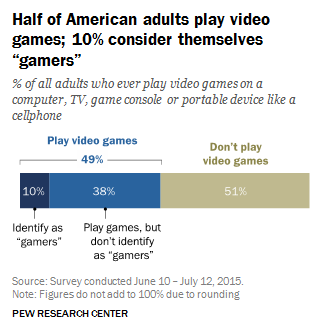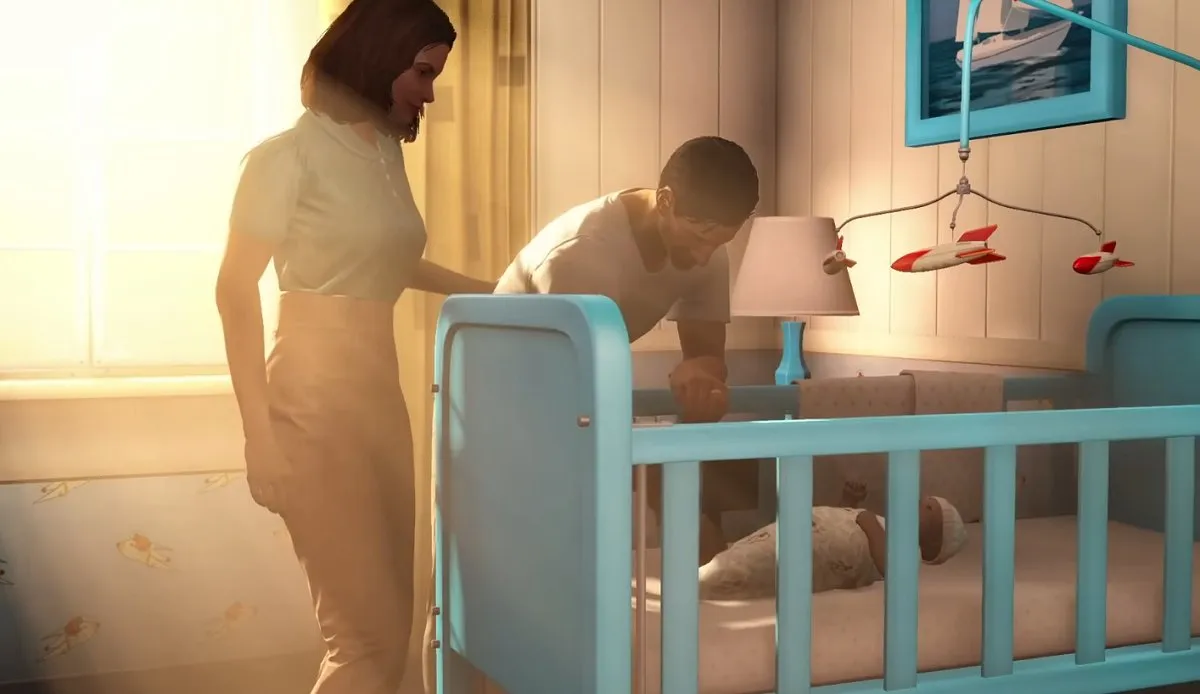Lots of people play games, but few people self-identify as a “gamer.” That’s always seemed anecdotally true to me, and now the Pew Research Center has collected some data to corroborate that sentiment. A phone survey in which 2,0001 American adults participated reveals that 50 percent of men and 48 percent women play games, but not all of them use the word “gamer” to refer to themselves.
Men were twice as likely as women to refer to themselves as gamers; 15% of men adopted the moniker, while only 6% of women did. In the 18 to 29-year-old age range, that difference is even more stark, with 33% of men in that demographic identifying as gamers and only 9% of women doing so.
60 percent of the respondents said that they think most people who play games are men; they’re right, but they may not realize how close the statistics are between male and female players.
Here are some of the survey responses to stereotypes about games and their players:
35 percent of those who play video games (and 53 percent of those who identify as gamers) think most games are not a waste of time, compared with just 13 percent of those who do not play video games.
33 percent of those who play video games (and 46 percent of self-described gamers) do not think minorities are portrayed poorly in most games; 9 percent of game players (and 10 percent of gamers) think most games do portray minorities poorly; and 61 percent of those who do not play video games are unsure what to think on this issue.
26 percent of those who play video games (and 35 percent of self-identified gamers) do not think women are portrayed poorly in most games; 16 percent of game players (and 24 percent of self-identified gamers) think most games do portray women poorly; and 55 percent of those who do not play video games are unsure what to think on this topic.
To me, the statistics about the use of the word “gamer” are the most interesting aspect of the responses. The first episode of Latoya Peterson’s “Girl Gamers” series tackled this very topic, navigating the various reasons why women don’t necessarily identify as gamers even if they play lots of mainstream games.
Arguments about the meaning of the word “gamer” — and gatekeeping around who gets to claim it — will probably continue until the end of time, but let’s not forget that videogame marketers have worked hard to codify games as a “boy thing” since the ’90s. I definitely think that’s played a huge role in who uses the word “gamer” nowadays, although it doesn’t seem to have stopped a diverse range of people from identifying as players of games.
(via Polygon, images via Vizzed and Pew Research Center)
—Please make note of The Mary Sue’s general comment policy.—
Do you follow The Mary Sue on Twitter, Facebook, Tumblr, Pinterest, & Google +?










Published: Dec 15, 2015 02:00 pm